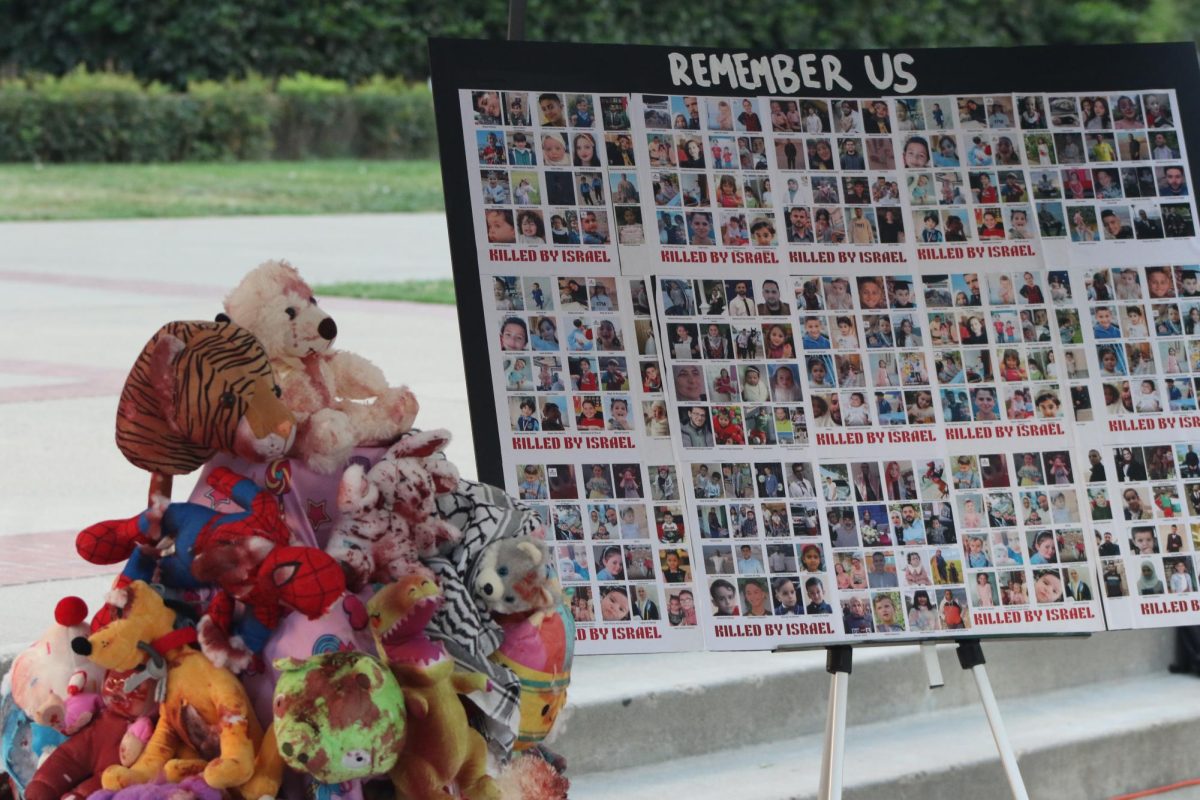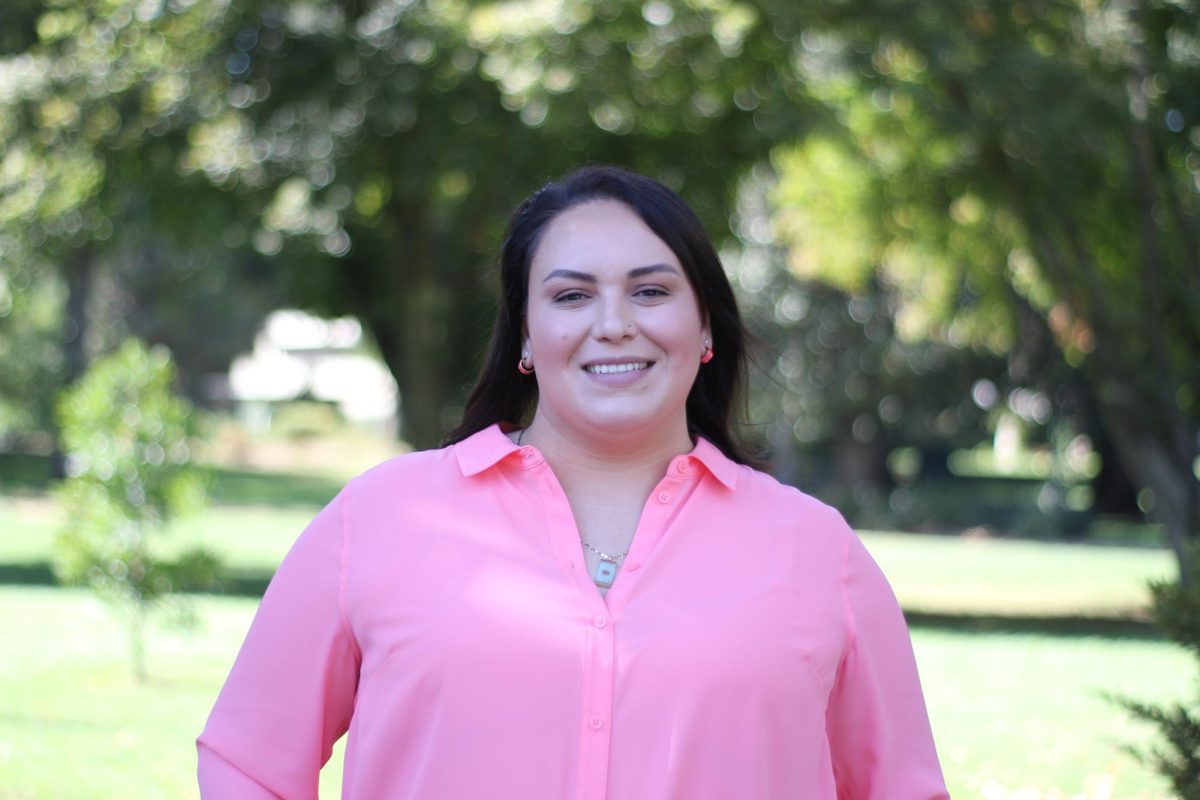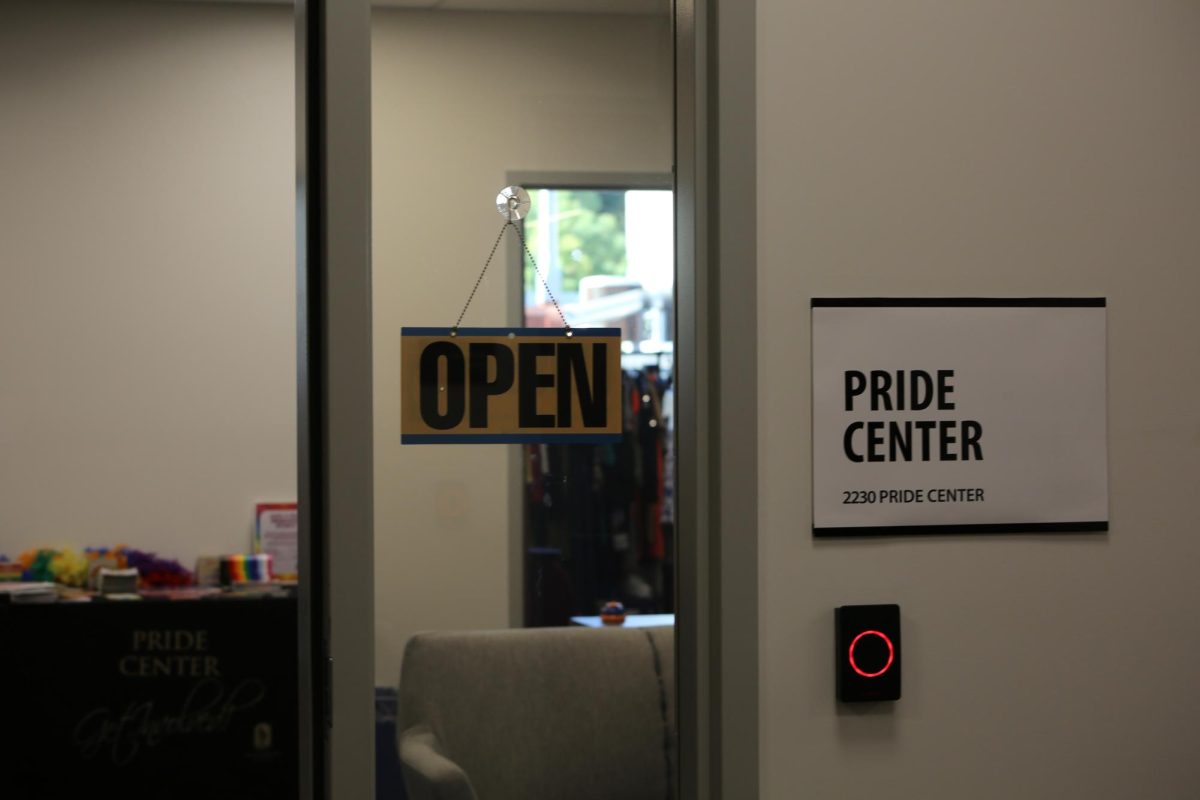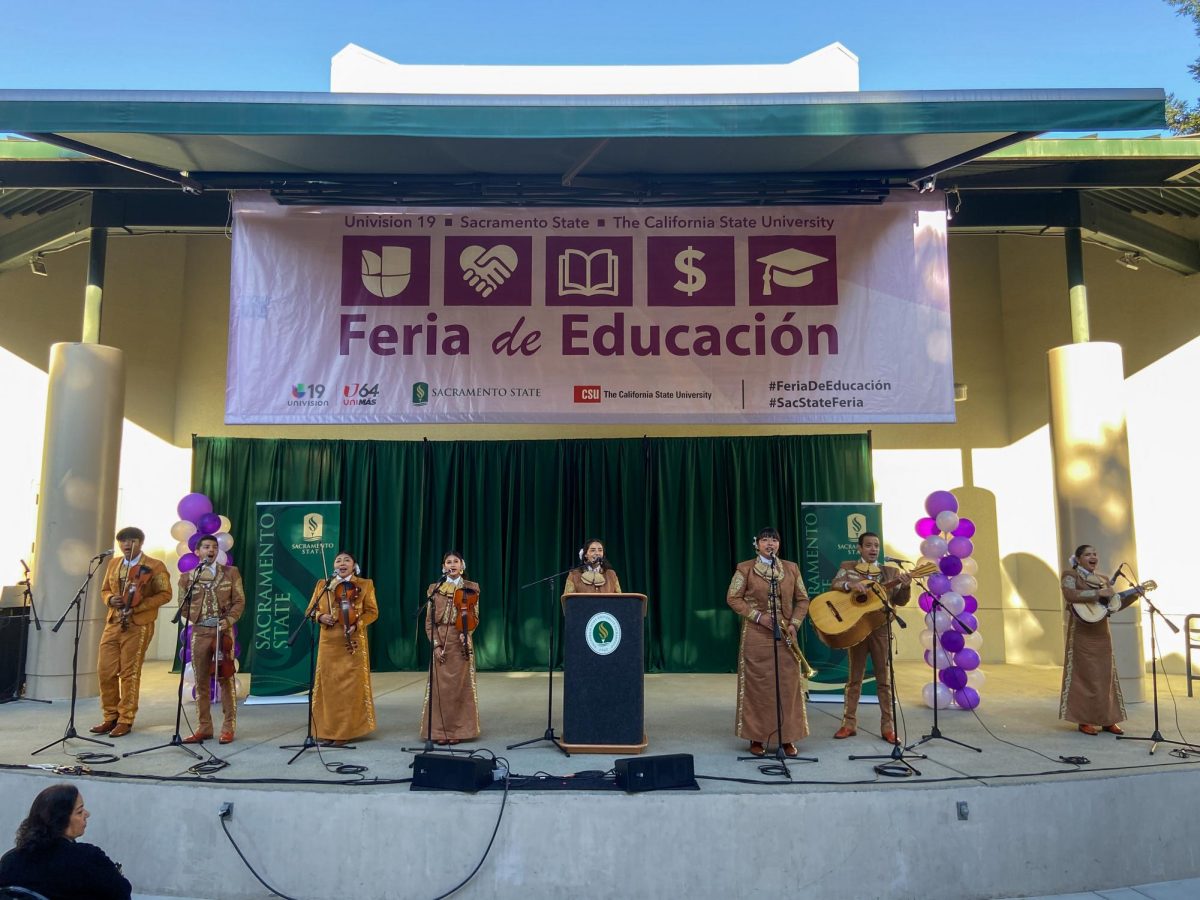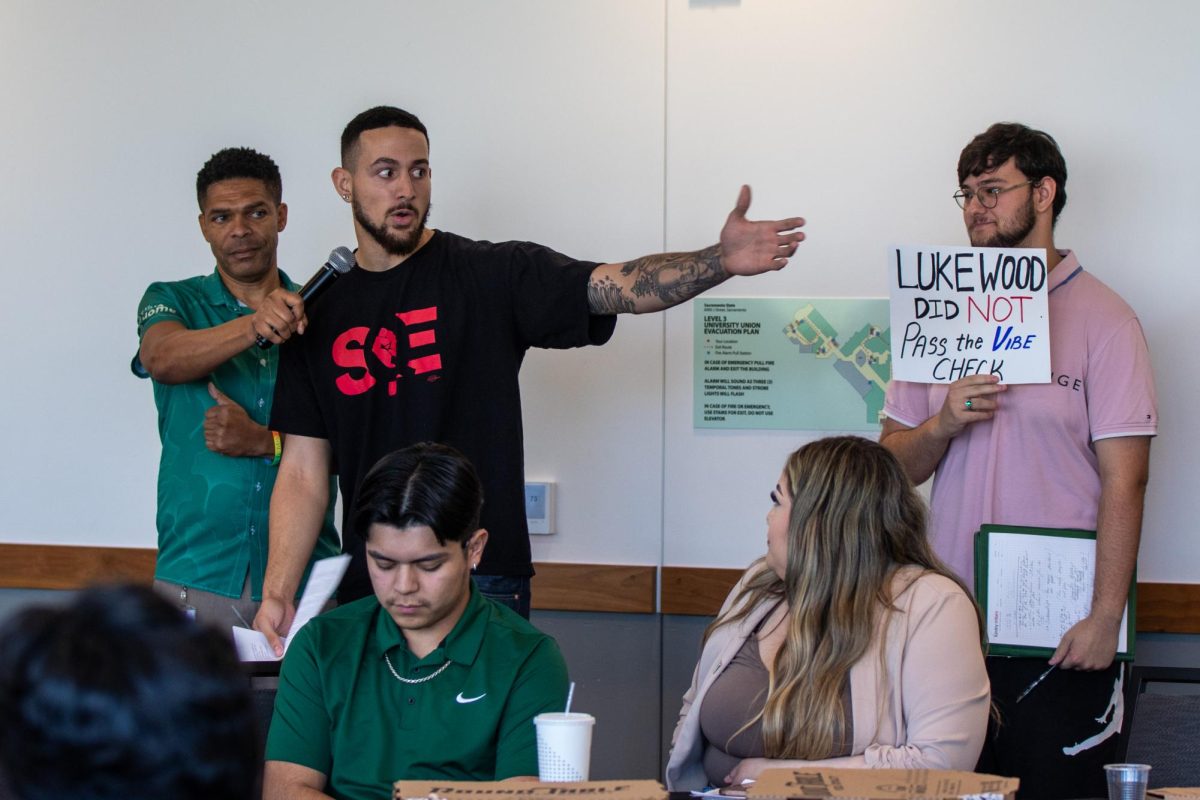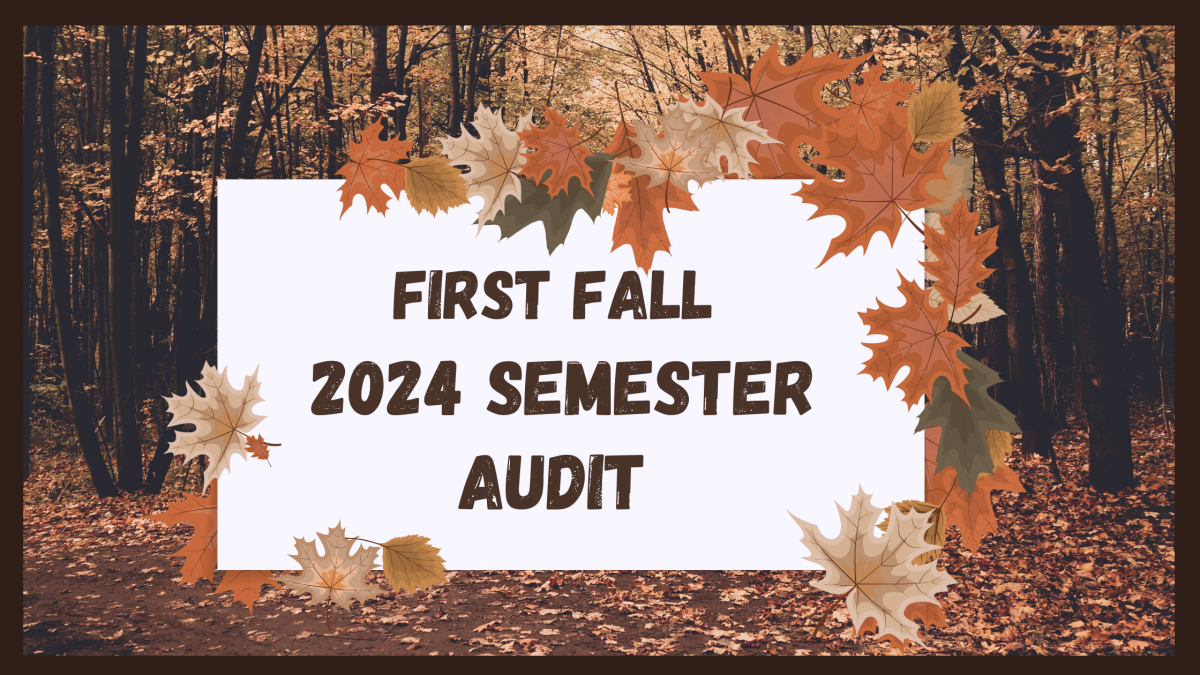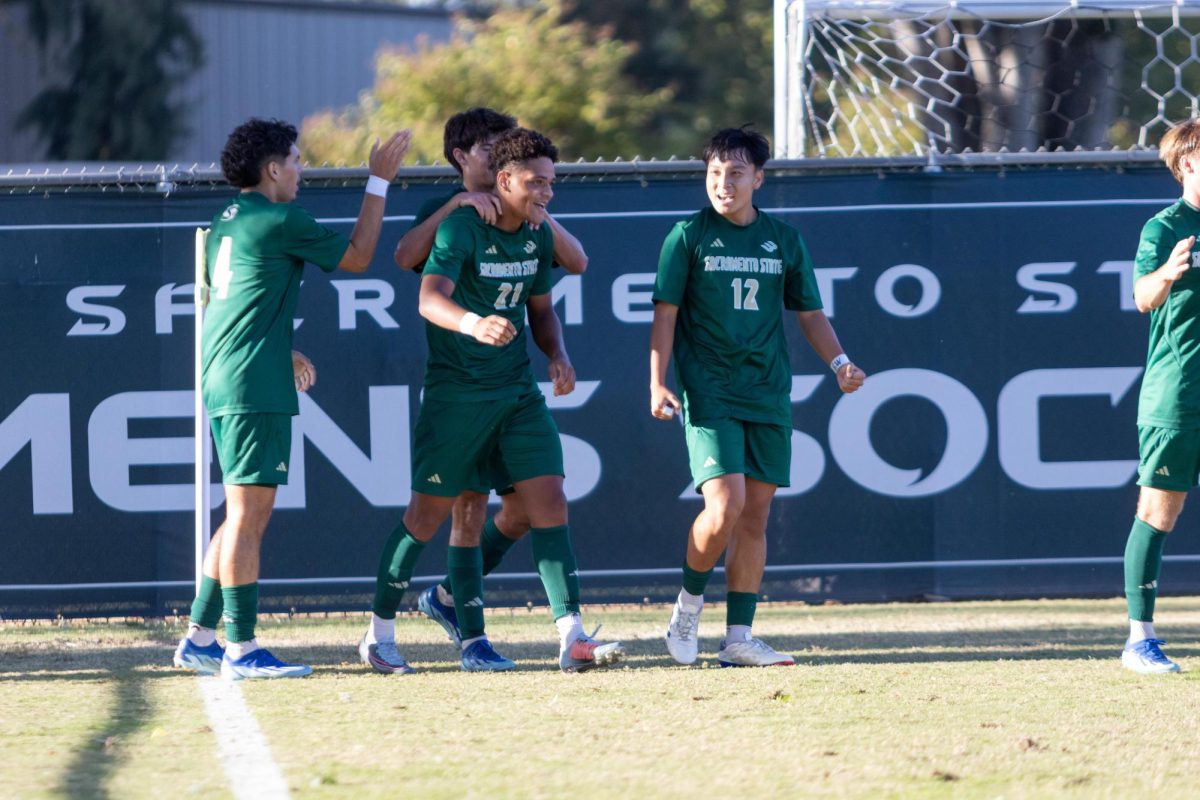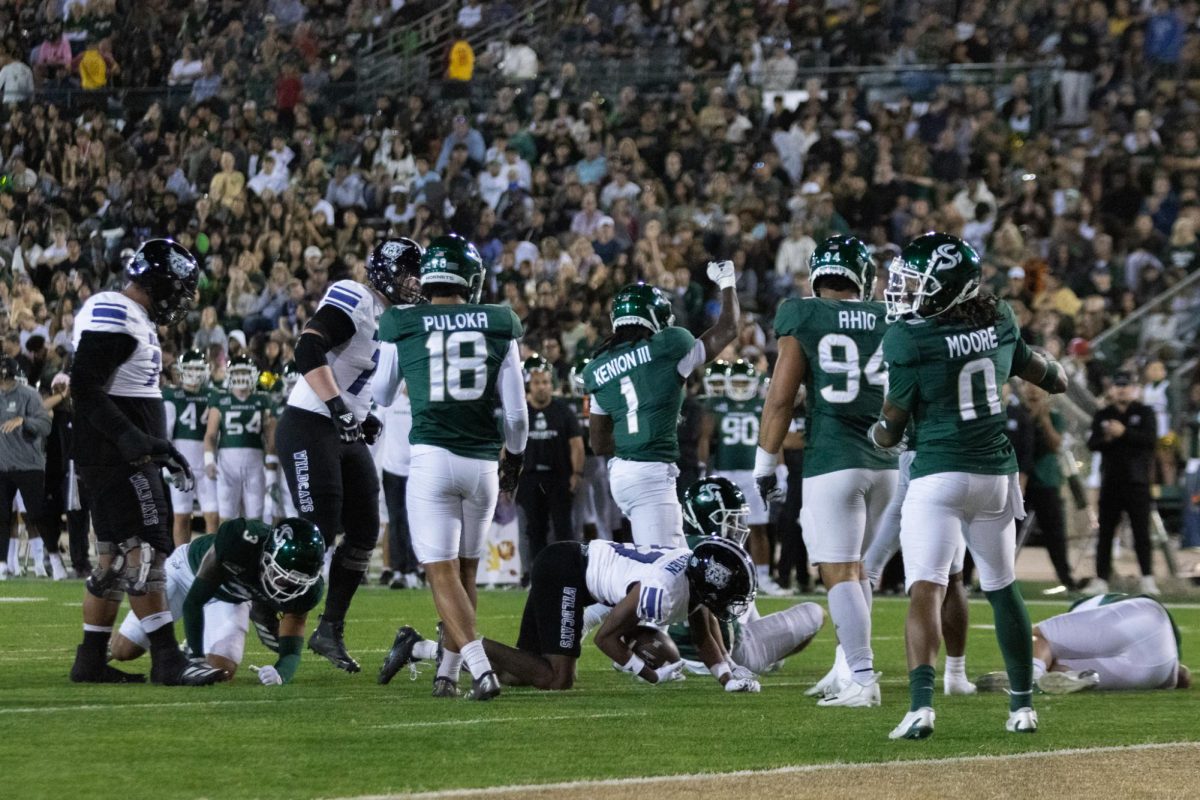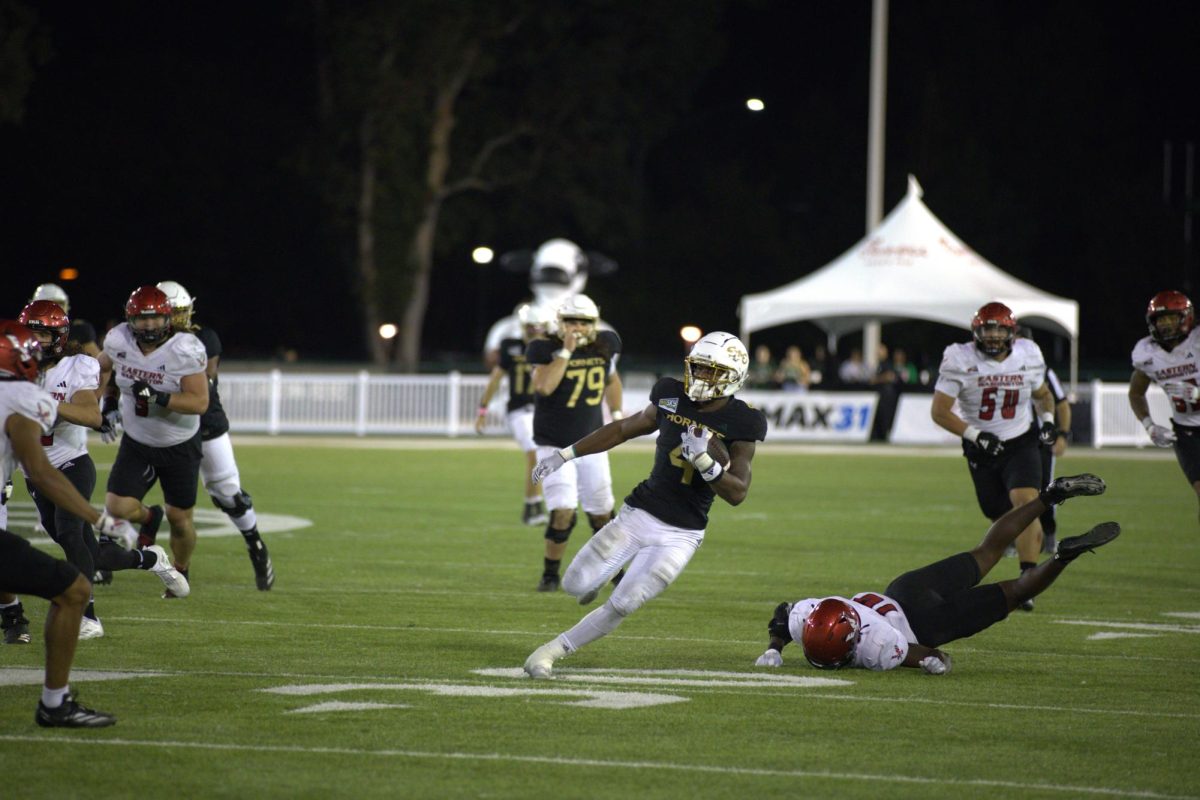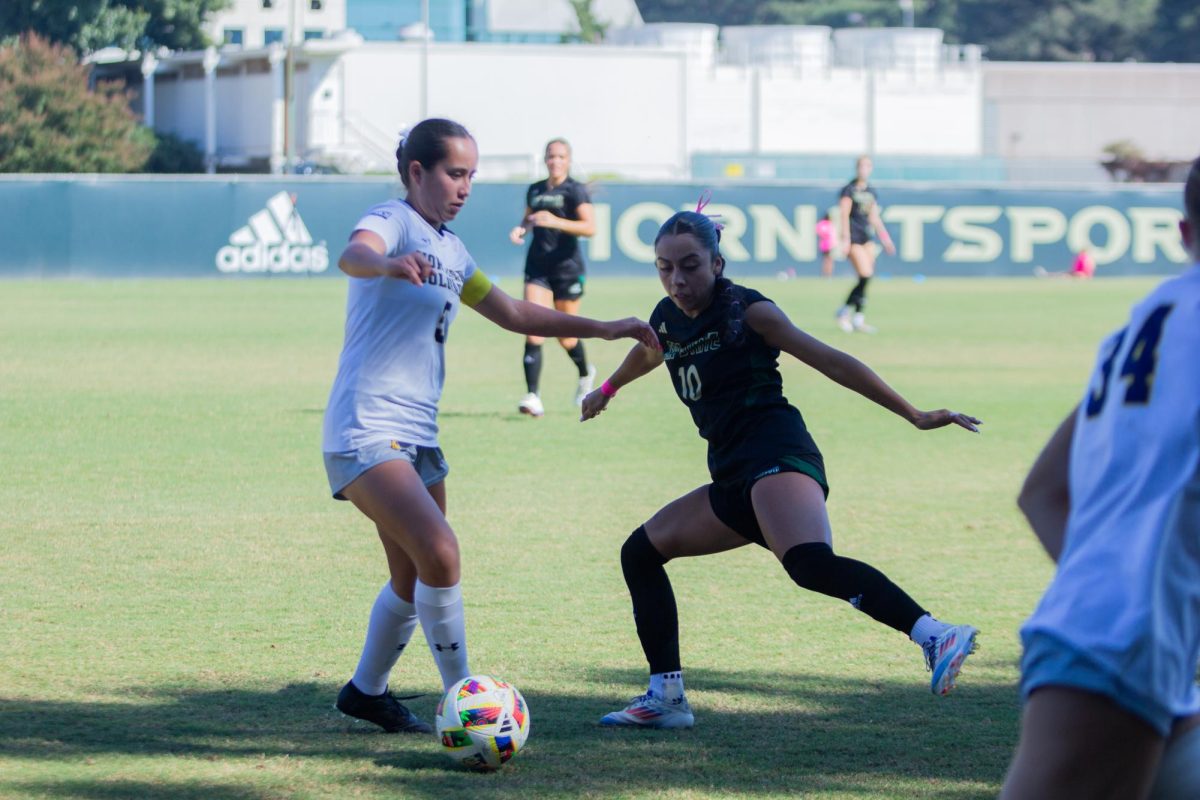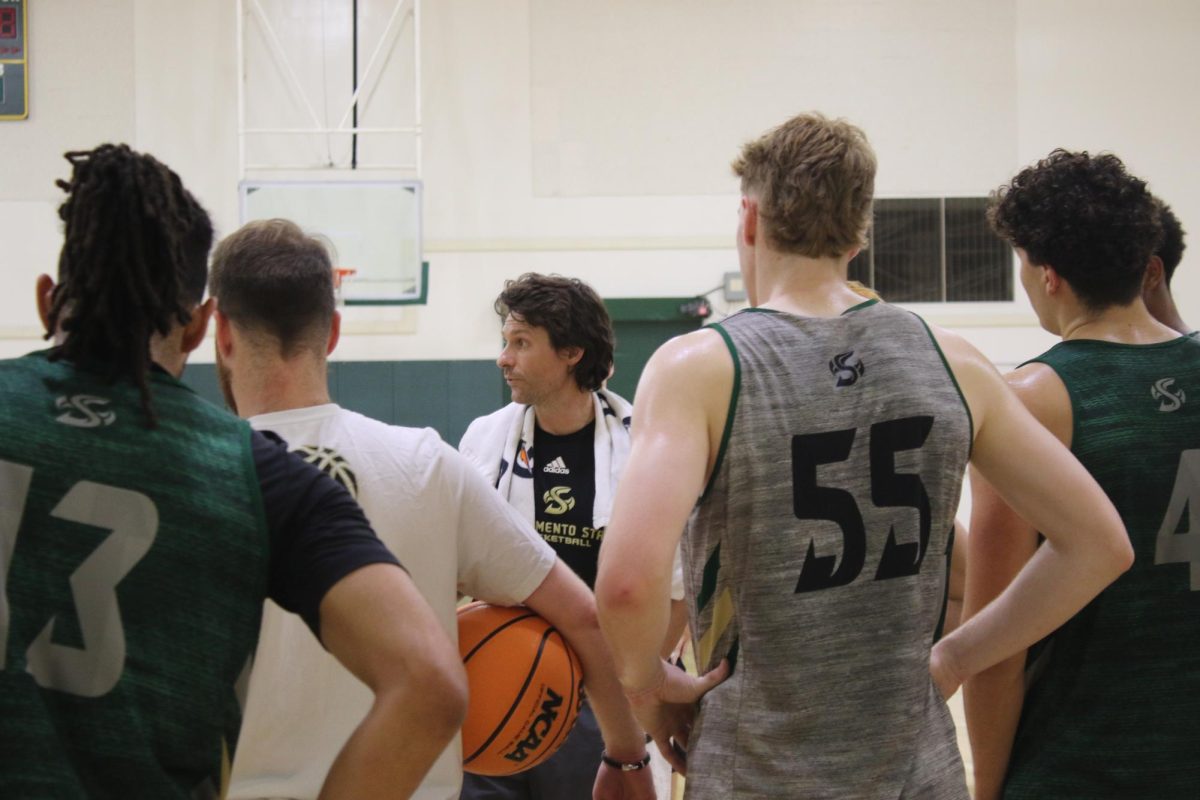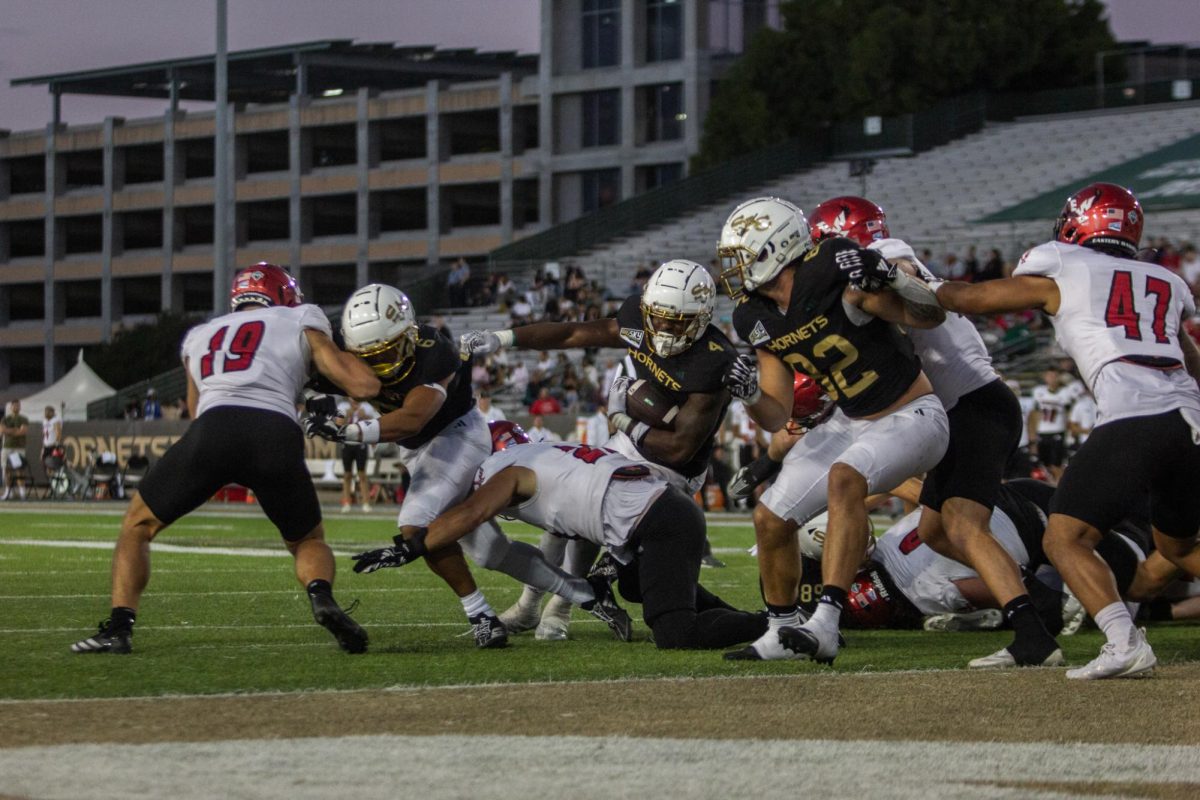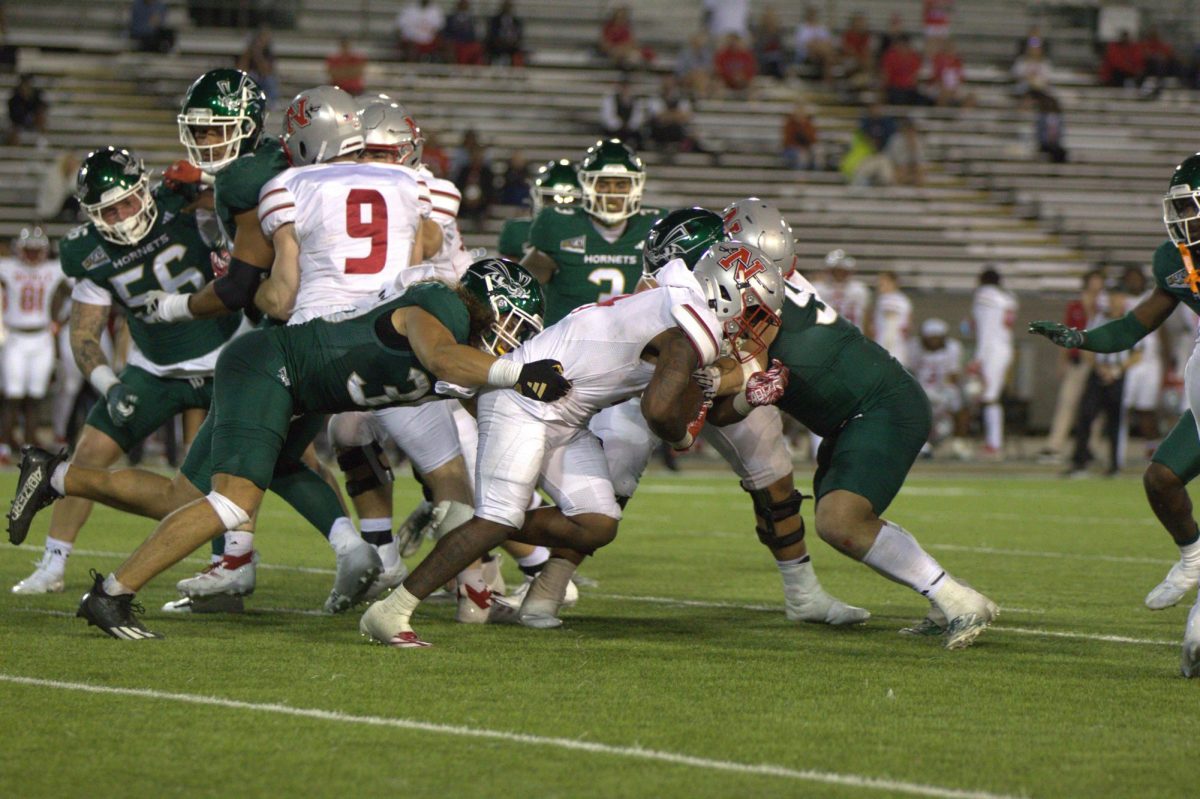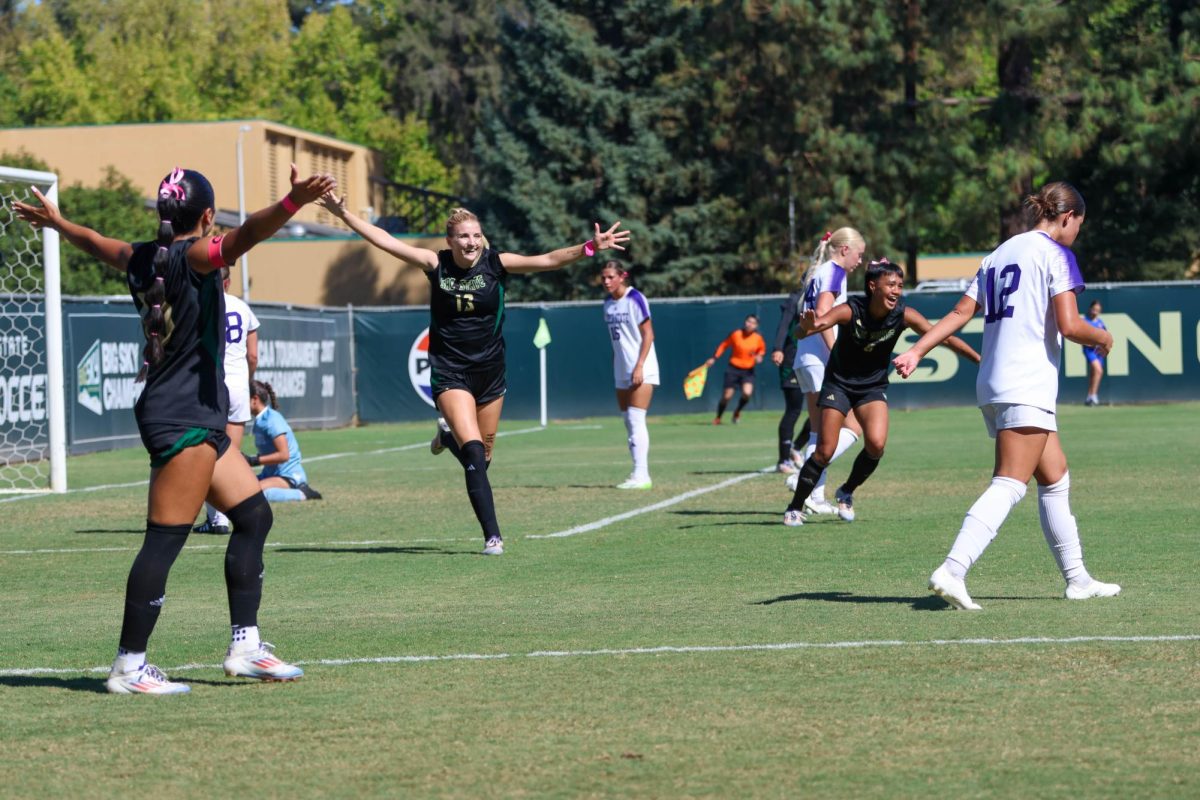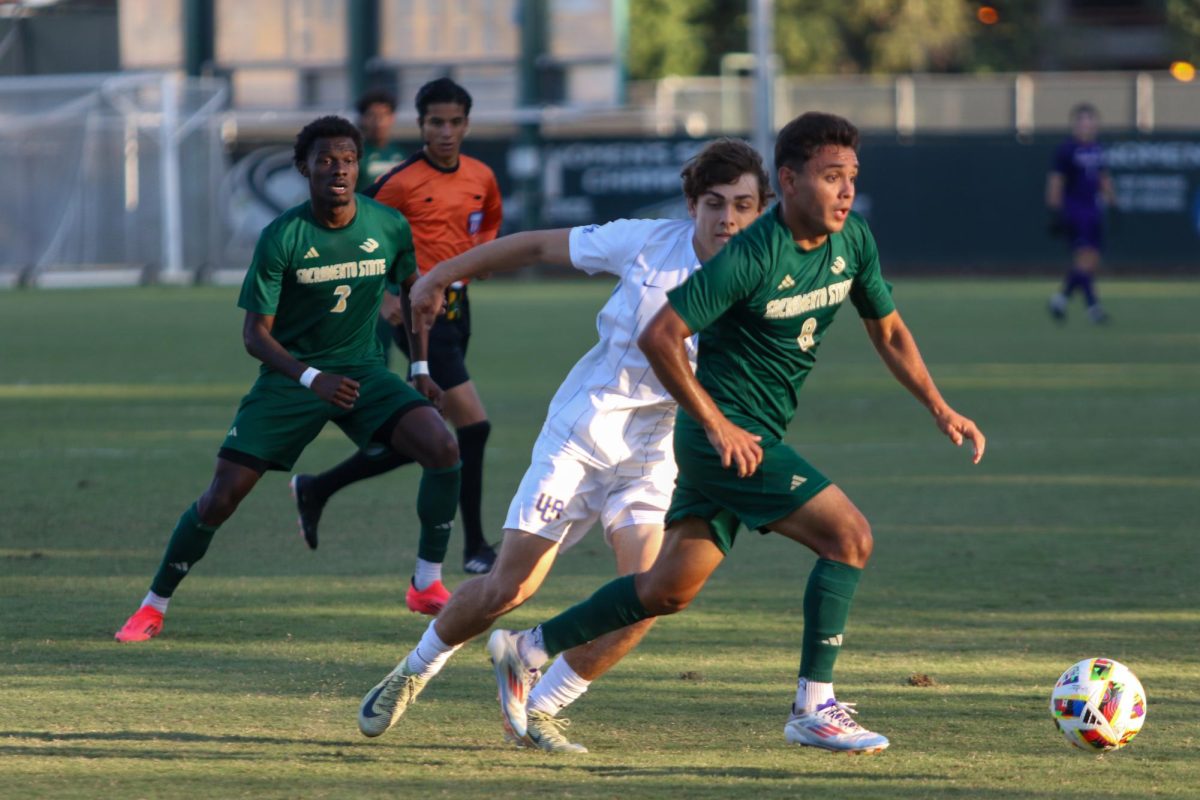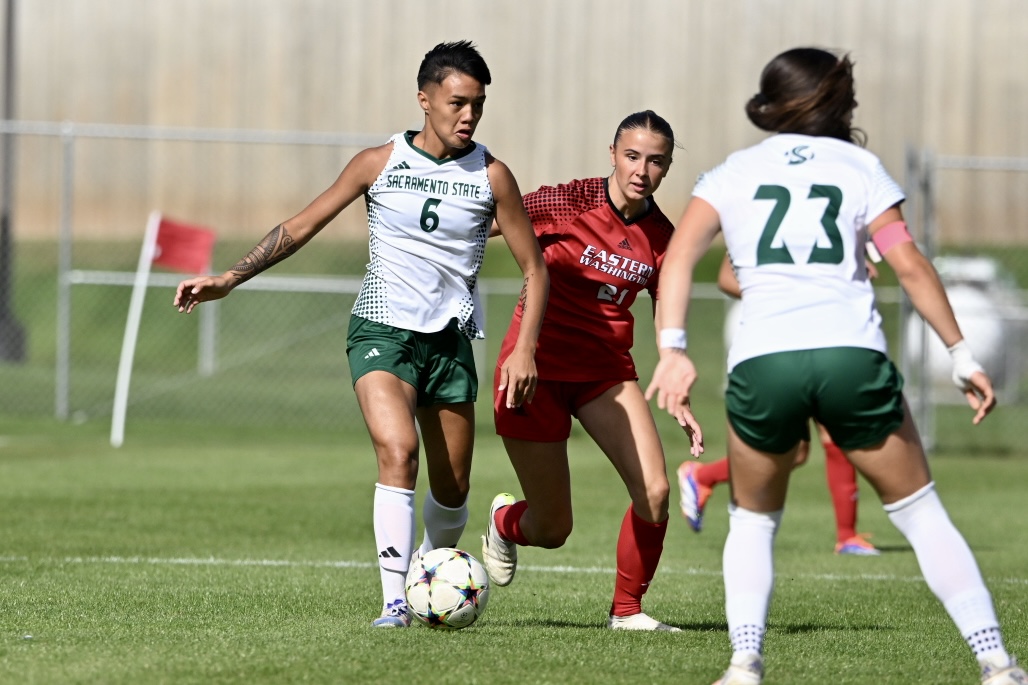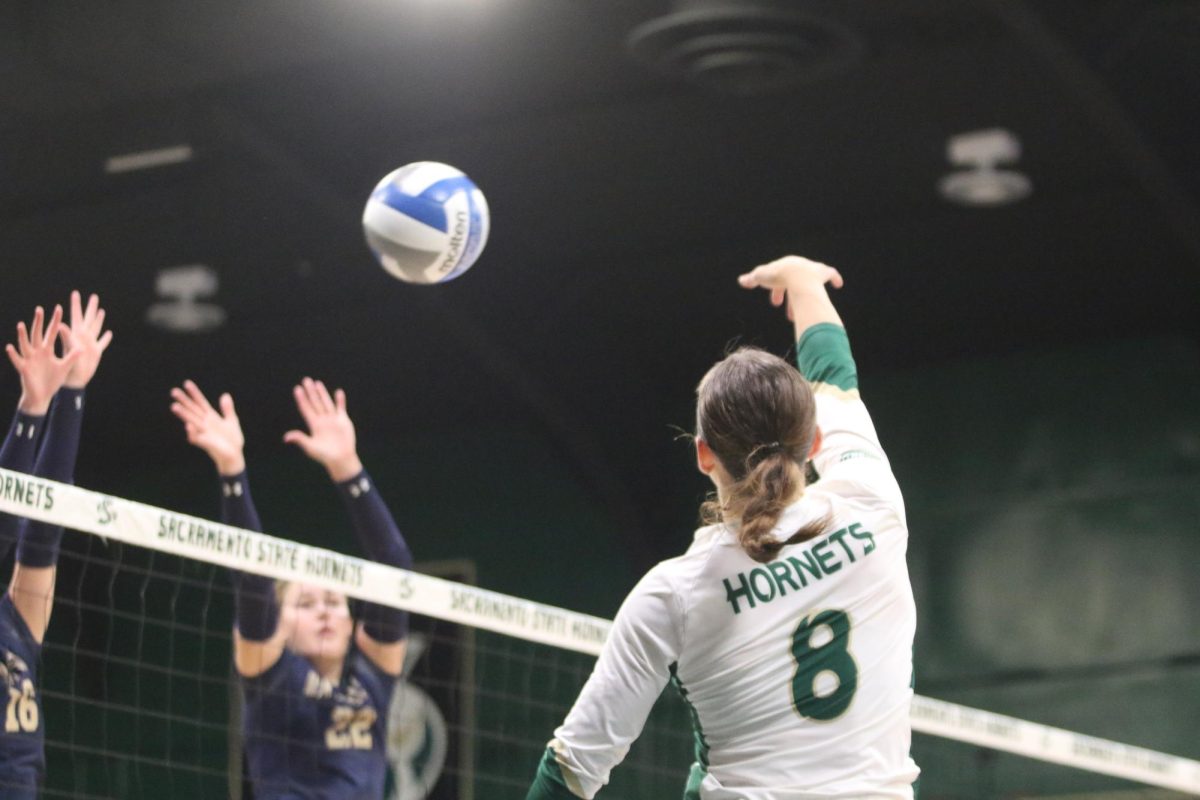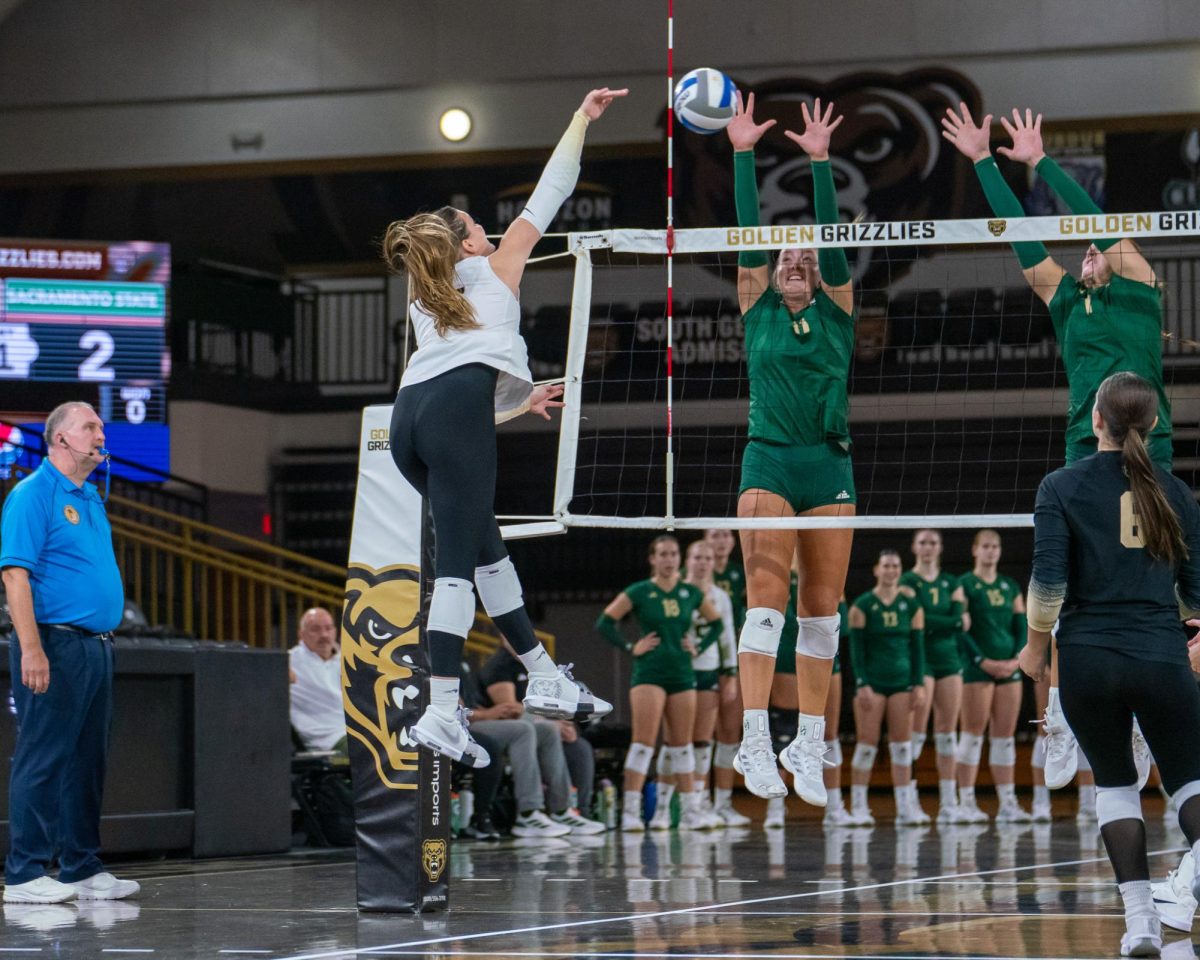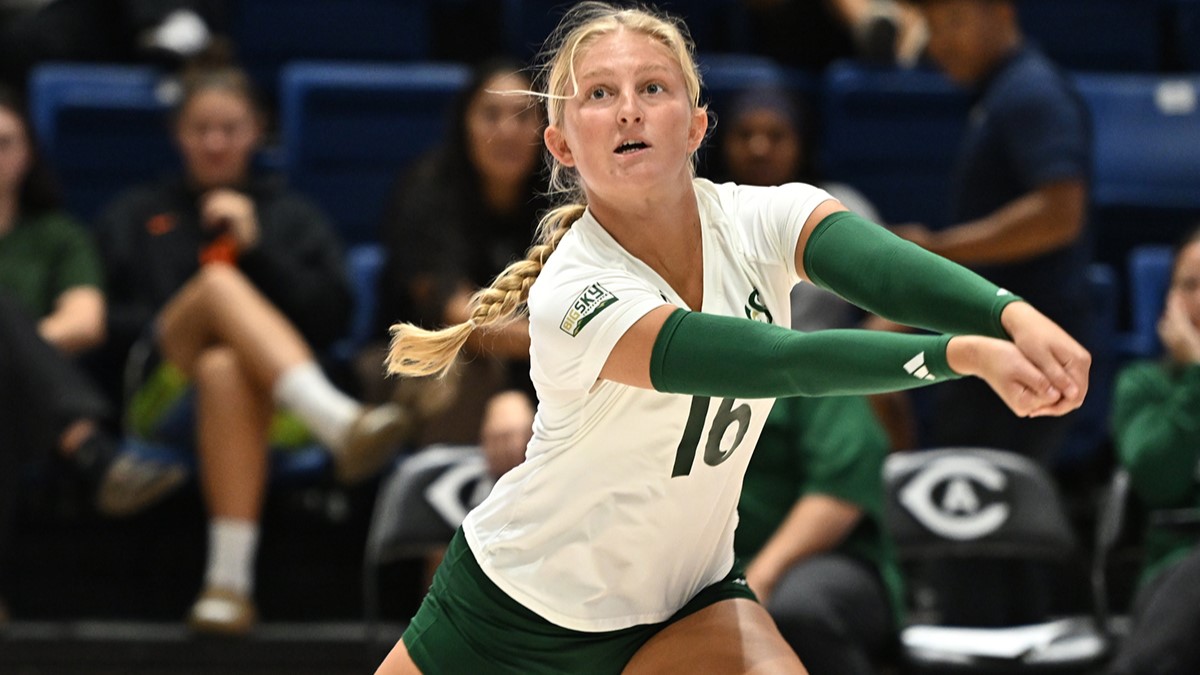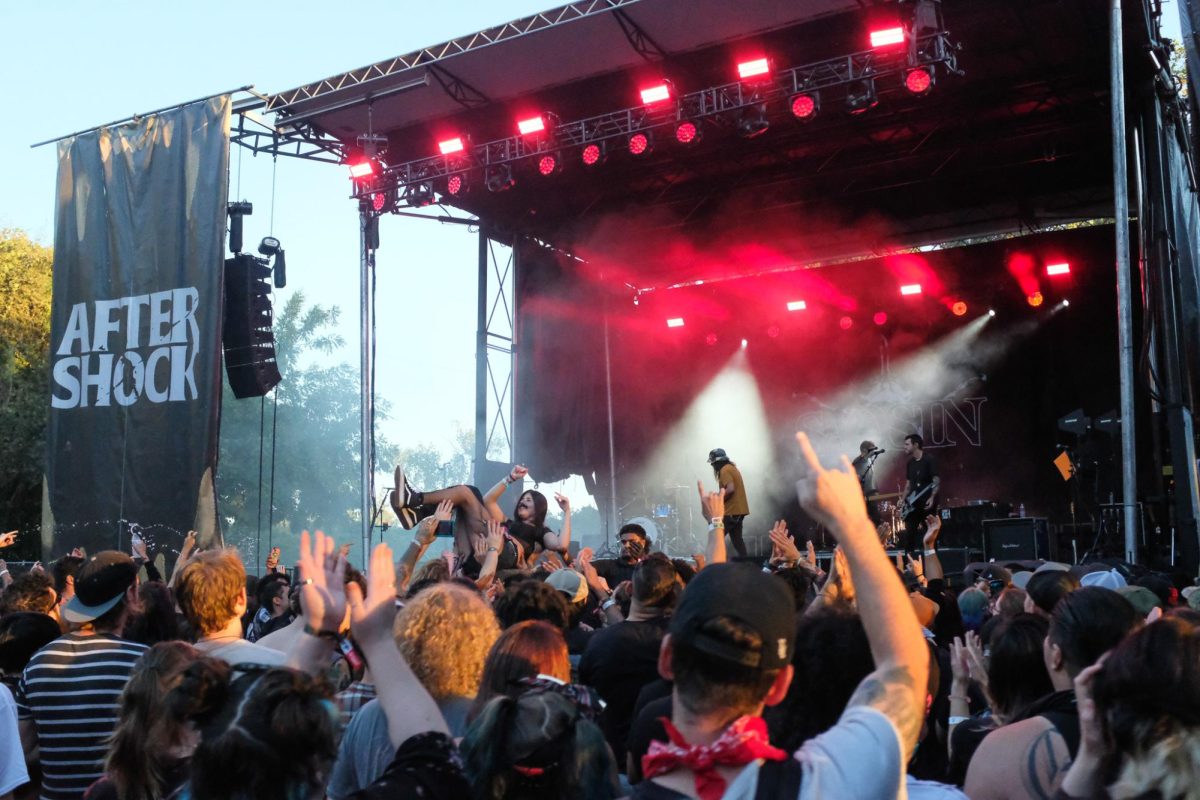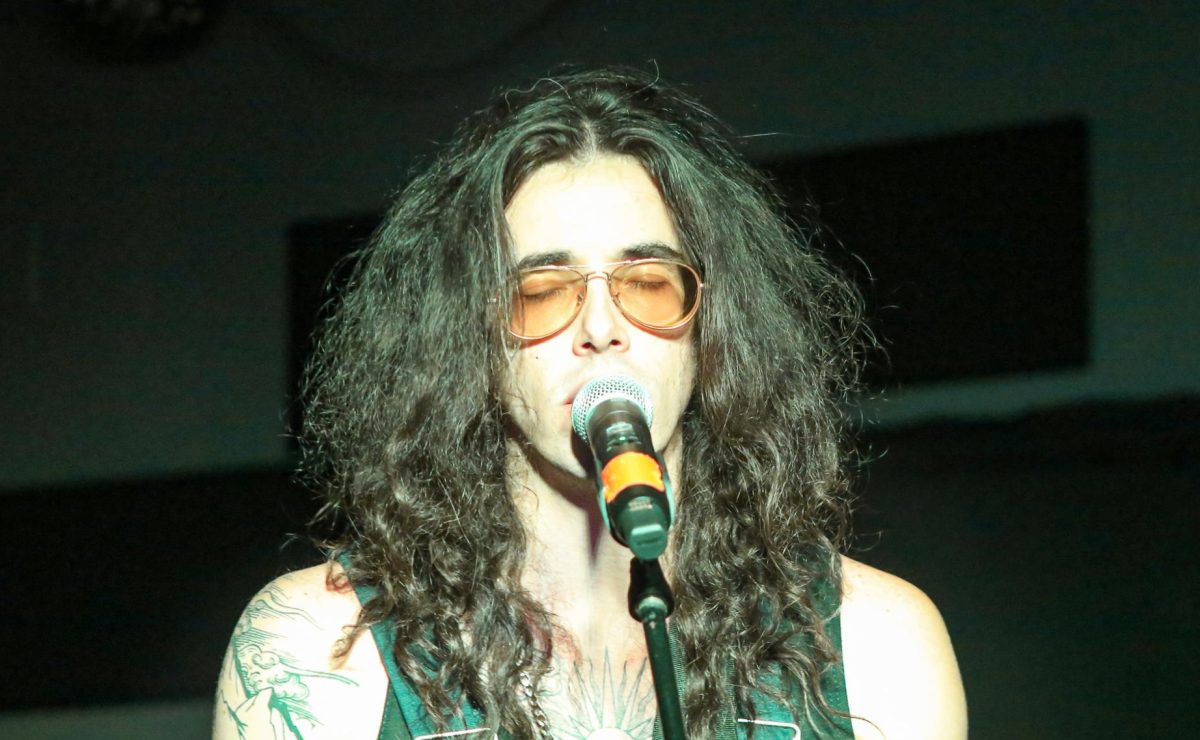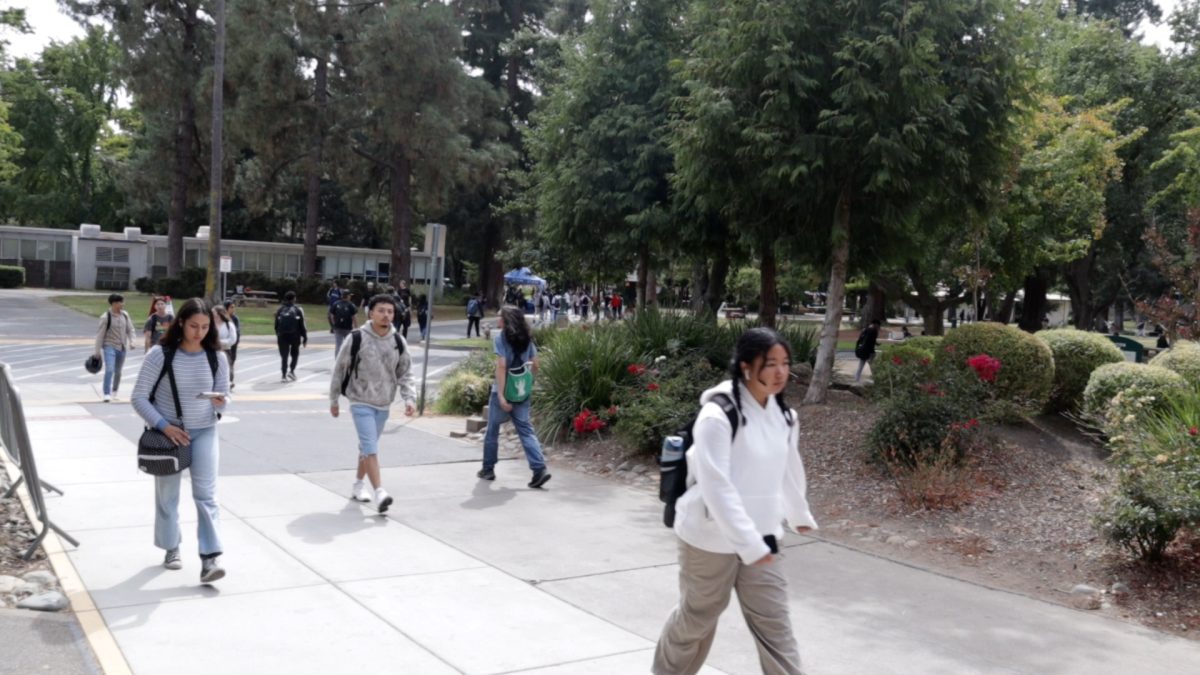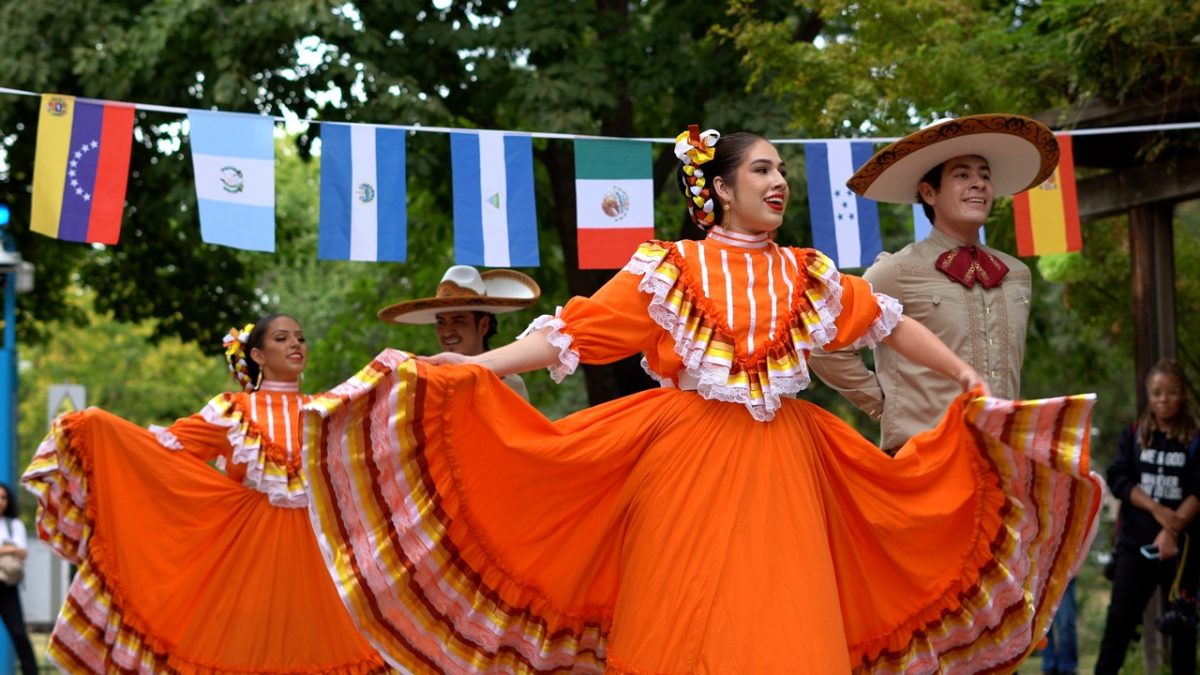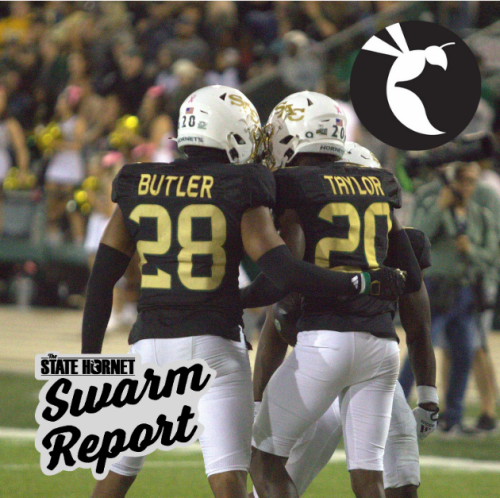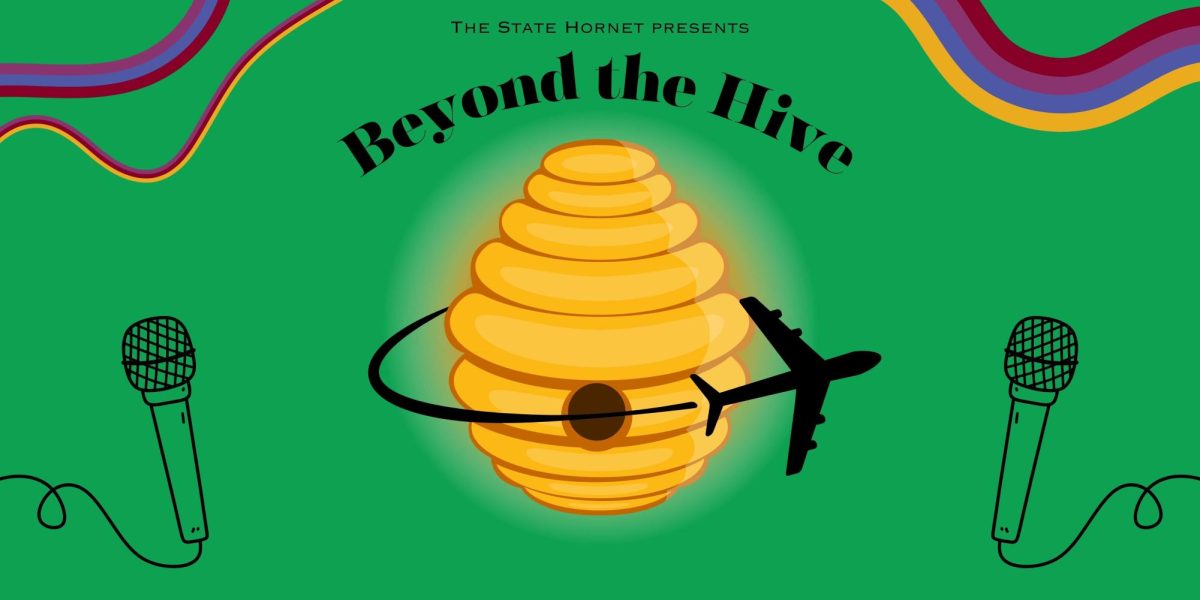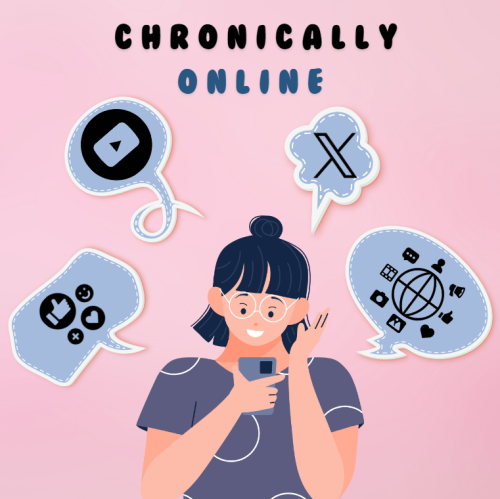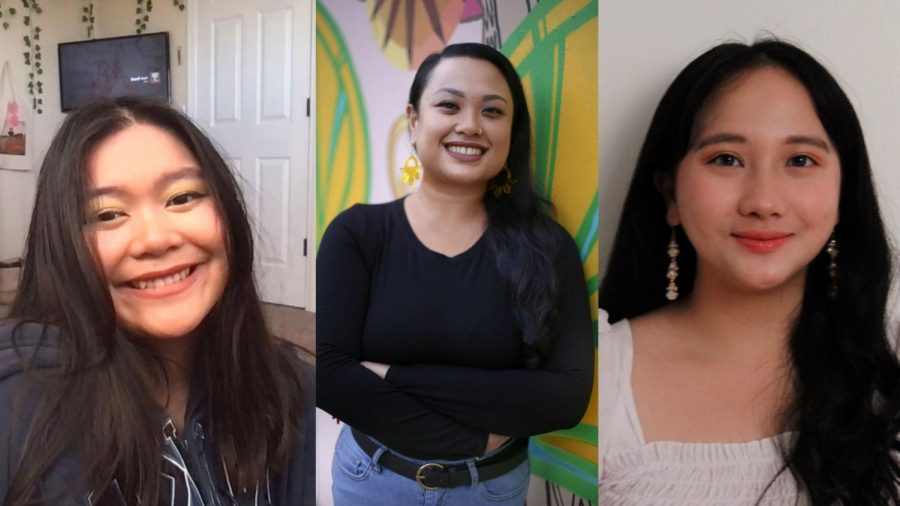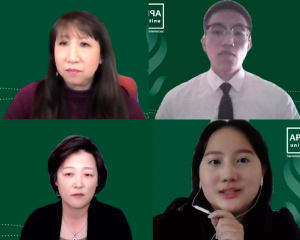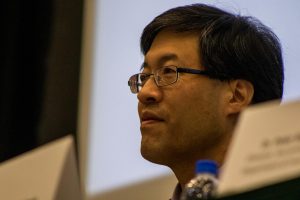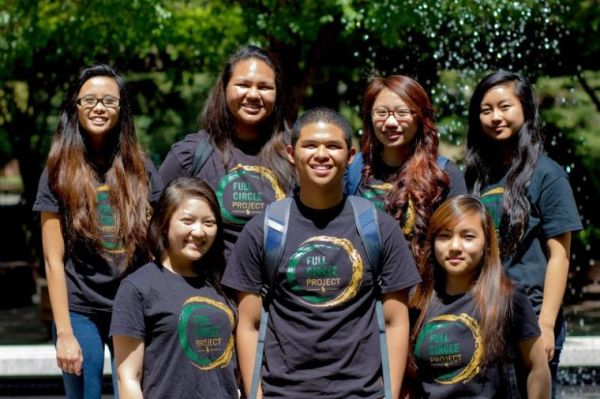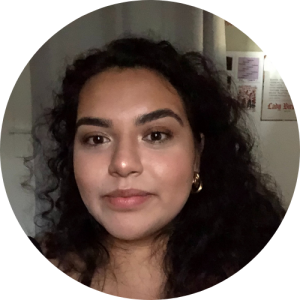Asian Sac State students, faculty share experiences navigating racism during the pandemic
(Left to right) My-Thy Nguyen, Marietess Masulit and Yee Thao discuss their experiences dealing with anti-Asian racism due to xenophobic rhetoric tied to the COVID-19 pandemic. The State Hornet spoke with members of the Asian American community at Sac State about what they have experienced since the start of the pandemic. Photos courtsey of Nguyen, Masulit and Thao.
May 7, 2021
Since the beginning of the COVID-19 pandemic, hate crimes against Asian people have rapidly increased — according to research gathered by Stop AAPI Hate, there were approximately 6,600 reported incidents of racism and discrimination between March 2020 and March 2021.
Individuals from the Asian American community at Sacramento State spoke to The State Hornet about how they have navigated anti-Asian racism in light of the COVID-19 pandemic.
“Anti-Asian racism is complicated because people don’t want to put in the work to understand the differences between people who are East Asian, Southeast Asian, South Asians and even Pacific Islanders,” senior political science major Asialyn Lee said.
As a Hmong-American, Lee said that despite being Southeast Asian, they often get mistaken for being East Asian or Chinese due to their lighter complexion and last name.
Lee recalls one of the first instances in which a classmate was overtly racist to them in a Zoom breakout room at the beginning of the COVID-19 pandemic.
“We were writing about our paper on the pandemic, but he literally just asked me like, ‘Oh, do you think calling it ‘Chinavirus’ is racist or not? Because I don’t,’” Lee said.
Before Lee could respond, Zoom crashed.
Lee said they debated about putting energy into having a constructive conversation with the classmate about COVID-19 and wrote an email to the student, but they never received a reply.
Lee said that students of color should not have to feel uncertain about whether or not their professors support them in dismantling white supremacy or having discussions about it.
“They group us all together although everyone in the community has such different perceptions, and experiences,” Lee said. “Asians are the model minority, which discounts a lot of our racial trauma.”
The model minority myth’s basis stems from the idea that Asian Americans are excluded from experiencing prejudice and discrimination due to stereotypes about them being perceived as more successful and intelligent.
According to Lee, the campus needs to continue creating intentional spaces for students of color to discuss racism and not solely rely on the ethnic studies department to do the work.
“It’s just performative after a while,” Lee said. “[President] Nelsen, emails are not going to stop anti-Asian racism, or anti-Blackness. We are not serving our students of color enough, and it’s hurting us.”
Lee said that apart from continuing to fund Asian and Pacific Islander and other cultural centers on campus, the school needs to focus on supporting its API faculty and students. Lee said they have witnessed professors and supervisors experience pushback from their white peers, causing them to be concerned about their own future in higher education.
Marietess Masulit, an ethnic studies lecturer, said she has recognized a constant anxiety in her community since the pandemic started and when President Donald Trump was using anti-Asian rhetoric, calling the coronavirus as “kung flu” and “Chinese virus.”
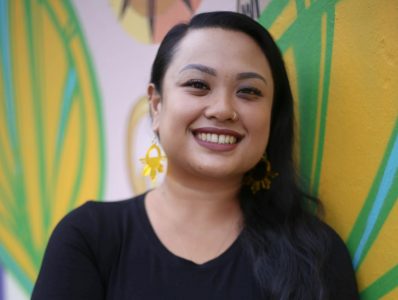
She recounted a moment at the beginning of the pandemic when she began to question whether people were keeping their distance from her because of the pandemic or because of anti-Asian sentiments.
“I remember being out at a restaurant, and then I was using the bathroom and I had noticed, I was washing my hands and a woman waiting, before washing her hands next to me,” Masulit said. “And it was one of those, where I was wondering, ‘Is this maybe like a microaggression like, she doesn’t want to stand next to me?’”
Masulit, also a program coordinator for the Full Circle Project, a center on campus designated to helping Asian American and Pacific Islander (AAPI) students succeed, said there’s a misconception about Asian and Asian American students’ service needs. She said that historically, API students are marginalized in higher education because of the model minority myth.
“Asian American students aren’t considered URM students,” Masulit said. URM stands for underrepresented minority and includes people who are Black, Latinx and Native American.
Masulit said students can also reach out to Asian Pacific Islander Desi American (APIDA) Faculty & Staff Association. An APIDA center has also been in development since Sept. 2020, and will soon be coming to Lassen Hall, according to Vice President of Student Affairs Ed Mills.
“There’s often a notion of not knowing how to ask for help within Asian American communities due to the cultural aspect of wanting to save face,” Masulit said.
Yee Thao, a freshman anthropology major with a concentration in culture, language and society, said she decided to attend a community healing session hosted by Sac State following reports of nationwide Asian-attacks, which she says did not help her.
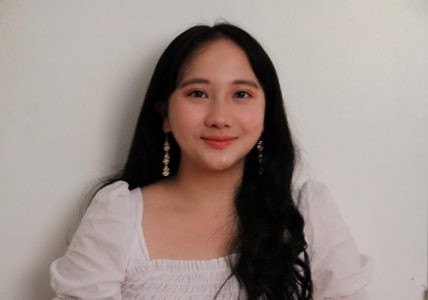
Thao said she thought the event would be led by a counselor of Asian descent who was culturally aware and would be able to speak from their own experiences to relate to students. However, this was not the case.
“It was a white male counselor who did not understand anything,” Thao said. “It’s just like this whole cultural barrier.”
Thao said the event made her wonder if Sac State had Asian counselors available for students, as confidentiality and trust is a big concern for students. Student Health and Counseling Services has a website where students can see the counselors available through The WELL.
“A lot of students don’t feel comfortable talking to someone who they think doesn’t relate to them and doesn’t understand that,” Thao said.
Thao said API students have to navigate difficult emotions as they unpack white supremacist values that they see present in the communities around them. According to Thao, attending workshops hosted by the Full Circle Project have helped her feel better about her own positionality.
“A lot of these things are still internalized for me, so, even now, I still apologize for expressing my grievances, or for speaking too much,” Thao said. “For me personally, understanding how systemic racism has played into my everyday actions and my own mindset really allowed me to help feel better about my own circumstance as an API student.”
My-Thy Nguyen, a sophomore majoring in social work, said people of color should all recognize their struggles come from the same system.
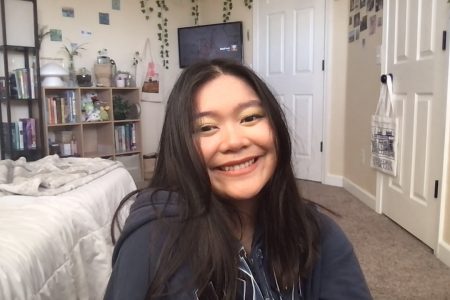
“I think one thing that I’ve seen a lot of that’s not really talked about is different communities of color pointing fingers at each other, saying, ‘You’re anti this, why should I help you?’ ‘You’ve treated my community like garbage, why should I help you?’” Nguyen said, “Pointing fingers isn’t going to do anything. You’re fighting fire with fire.”
Nguyen said it’s frustrating to see her community only garner awareness fairly recently after the Atlanta attack. The targeted shootings that occurred in Atlanta spas on March 16, 2021, left eight people dead, six of which were women of Asian descent. She said she’s in a state of constant worry every time her parents leave for their jobs.
“I would love to see people, not just Asian Americans, but our allies standing up for us,” Nguyen said. “Unfortunately, this anti-Asian hate crime rise has been occurring since the first article of COVID-19 appearing in China.”
Nguyen said it is important to help out people who are especially vulnerable now due to this pandemic.
“What’s been happening within the Asian community, unfortunately, it shouldn’t be politicized, because it’s a human rights issue,” Nguyen said. “But it has to be politicized, because it’s within the system, it’s within our government, and it affects our everyday lives,” Nguyen said.
Mills said Sac State students and faculty can reach out to the Dean of Students Office, the Office of Student Conduct and the Office for Equal Opportunity to report hate incidents, and they can report hate crimes to university police.
Sacramento State Police Chief Mark Iwasa said there are no records of reported anti-Asian hate crimes on campus between 2018 and present day.
When asked about what else Sac State plans on doing to support their Asian American students, Mills said he’s looking forward to the Full Circle graduation for spring 2021 as well as working to define what students need and want from the APIDA center this summer.
Mills said he wanted to survey students this semester to ask for their input about what they would like to see in terms of events, programming and peer mentoring for the APIDA center, but couldn’t due to “everything happening with COVID and vaccines.” Mills said he hopes to conduct this survey this summer.
“Partnering with Inclusive Excellence and with the staff and administrators in that division… that’s going to be really important to identifying what are the next steps and what other things we need to do,” Mills said.



